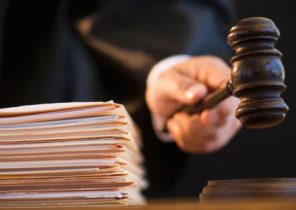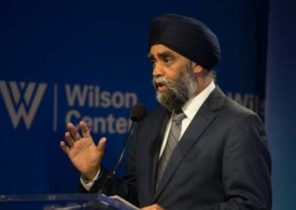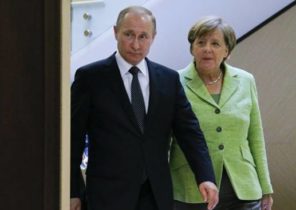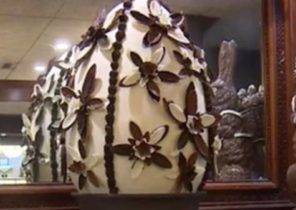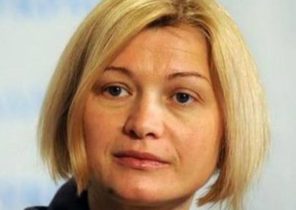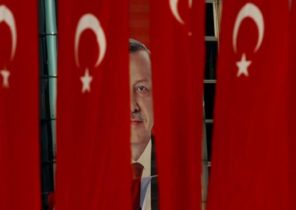A Martyr and a rebel who never went off the beaten path, and rushed to the top despite all obstacles. So own the life and career of Boris Yeltsin described in his autobiography, translated into Czech in 1991 and called “Against the grain”. Friday will mark 30 years since then, as the blonde big guy stood at the head of Russia.
In the days of the Soviet Union Mikhail Gorbachev, the Congress of people’s deputies of Russia elected Yeltsin as its Chairman. He began his decade in charge of Russia, the end of which put unexpected resignation, announced on television under the new 1999. Then Yeltsin handed power to Vladimir Putin.
The first Russian President himself described his life as an endless struggle. At baptism the priest almost drowned him in the font. During the explosion at the ammunition depot he was a young boy, lost two fingers on his hand. Then at the railway crossing, the train collided with the truck, which sat Yeltsin, but he miraculously escaped unhurt. In school, Yeltsin had a serious conflict with a teacher, and he was threatened with expulsion.
Chartered civil engineer became the first Secretary of the Sverdlovsk regional party Committee (now Yekaterinburg). In Moscow, Yeltsin asked Gorbachev to head the local party organization. Prior to 1987, Yeltsin relied on more radical than Gorbachev, attitudes and called for more changes. He criticized the party bureaucracy, encouraged to limit the privileges of party functionaries and claimed that some of them support reforms of Gorbachev only for the view. “I knew what would happen. I will destroy systematically and regularly. They were like a pack of dogs, ready to tear me to pieces,” wrote Yeltsin in his memoirs.
In June 1991, the Russians for the first time chose Yeltsin as its President. Voted for by 58% of voters. “At that time Yeltsin left the Communist party. His election as President confirmed that Russian Communist party for ordinary Russians unattractive,” wrote historian Robert Service in his book about the history of Russia.
Two months later, Yeltsin standing on a tank in front the Russian Parliament opposed the coup, which tried 19 August 1991 to overthrow Gorbachev and restore Communist system in the old format. The failure of the coup swept not only the coup, but Gorbachev, and with it the entire Soviet Union. From the Kremlin flagpole, lowered the Soviet flag and replaced it with the Russian tricolor. Yeltsin became President of independent Russia, took the place of Gorbachev in the Kremlin.
Occurred incredibly happy in the Baltic States. Yeltsin, unlike Gorbachev, even before August 1991, refused to hold Lithuania, Latvia and Estonia in the common state by force and was against the introduction of troops, which Gorbachev sent in the Lithuanian Vilnius. After the arrival of Yeltsin in the Kremlin all three Baltic republics gained their freedom and could leave…
Shock therapy
So in Russia it was a time of economic change and reform, today known as shock therapy, kioskovyh capitalism or “altinate”. The transition from centrally planned economy to a market economy was led by a team of young reformed headed by Deputy Prime Minister Yegor Gaidar, grandson of the writer Arkady Gaidar, the author of the iconic Communist novel about the pioneers of the “Timur and his team”. In early January 1992, the Russian government liberalized prices.
In the last years of Gorbachev’s rule, the people across the country stood in long queues in front of almost empty shops and nothing to buy. Now the situation has changed. Goods returned to the shelves, but everything is very expensive. Inflation has increased by hundreds of percent. The ruble devalued, and people lost their savings, the cost of deposits in savings banks decreased. However, the government maintained low fees for electricity, gas and transport, subsidized agricultural products.
Russia, like Czechoslovakia, the beginning of the voucher privatization. Every adult Russian citizen was supposed to be a voucher with a nominal value of ten thousand rubles, and it could buy a stake in the company in which the citizen worked. It so happened that most of the vouchers the employees bought out the management of these companies. Large companies, primarily in the energy sector, privatized several entrepreneurs, which became known as the oligarchs. In exchange, they supported Yeltsin politically, and gave the money to his campaign. These include, for example, belonged to Boris Berezovsky and Mikhail Khodorkovsky, which since 2000, Vladimir Putin began to get rid of all ways.
Corruption and scandals
Personal Secretary to Yeltsin Yury Baturin after years wrote that at the time of privatization and transition to market economy was made gross errors, the process was corrupt and the Russian public are badly informed. Buchanan wrote that privatization has led to a deep property stratification of society. Privatization was accompanied by endless scandals and corruption scams. The preparatory campaign was absolutely confusing to some Russians, and others have caused high expectations. One of the authors of privatization, Anatoly Chubais, for example, promised the Russians that “voucher in a few years will cost as Volga”.
The period of economic difficulties and economic culminicola default or “black day” on August 17, 1998. Has come to Russia the consequences of the Asian financial crisis last year. The country could not pay their debts and declared a three-month moratorium on payment of foreign loans to the lender. The ruble collapsed, and in three weeks the Central Bank has allocated for the protection and maintenance of the course in terms of five billion dollars. People again began to worry about their money in banks, and in front of the offices lined up a huge queue of those who were required to give their contribution.
However, the devaluation of the ruble to 80% helped Russian exporters, and revived domestic production. Further development was facilitated by high oil prices on the world market than in the first years of his presidency, Putin took. Russia fell to the economic bottom and pushed away from him, which coincided with changes in the Kremlin: in place of Yeltsin came Putin.
By that time Yeltsin’s popularity was falling. In the presidential elections of 1996, he barely walked, Communist Gennady Zyuganov. With all the main and important media favored Yeltsin. Part of the popularity he was deprived of the war in Chechnya, the first “action” which ended in the same year a truce, but not defeat Chechen rebels. The Russian army left the territory of the Republic. In foreign policy elzanowski decade was marked by the retreat of Moscow from the standpoint of power, as the authorities focused primarily on domestic issues and challenges. Russia didn’t much affect the war in the former Yugoslavia and did not prevent the expansion of NATO at the expense of countries in Central and Eastern Europe.
With Yeltsin relate some funny and strange stories, mainly related to its thrust to vodka and all strong drinks. Although sometimes difficult to understand, if these stories are true. For example, it is said that once during a visit to Washington, he quietly walked out of the hotel into the street in Slippers and caught a taxi. Reliable evidence for this is not. At the time, also told how during a stop in Dublin Yeltsin was due to meet with the Irish President, but was unable to get off the plane. However, there is evidence of the strange reluctance of Yeltsin’s appearing on TV or in pictures with glasses. He wore them in real life, but in public they wore. His team printed the him speech in big letters so Yeltsin had to get glasses.
Boris Yeltsin died in 2007, seven years after he left the Kremlin.
